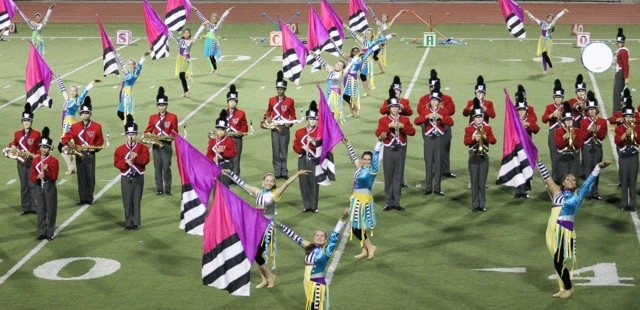Is Marching Band a Sport? The Debate Explained with Facts

Is marching band a sport? This question continues to spark debate in schools, online forums, and among parents and students.
Many people view marching band as a musical art form, but those who’ve participated know it requires serious physical effort, teamwork, and competitive drive, just like any traditional sport.
In this article, we discuss whether marching band qualifies as a sport based on key characteristics, expert views, and competition structures.
Table of Contents
What Is a Sport?
A sport is a physical activity that involves skill, organized competition, and adherence to rules. It often includes individual or team participation and requires practice, endurance, and discipline.
Core Elements of a Sport Include:
- Physical exertion
- Skill-based performance
- Competition and scoring
- Governance by rules
- Team or solo involvement
According to the Oxford Dictionary:
A sport is an activity involving physical exertion and skill in which an individual or team competes against others for entertainment.
Why Marching Band Fits the Definition of a Sport
When evaluating whether marching band qualifies as a sport, it’s important to compare it against the commonly accepted criteria for what defines a sport.
Based on physical demands, structure, competition, and skill, marching band strongly aligns with the definition of a sport.
1. Physical Demands
Marching band members often:
- Carry large and heavy instruments for long durations
- March in sync over extended periods
- Perform complex formations while maintaining breath control and musicality
2. Competitive Structure
Marching band isn’t just a halftime show. Bands:
- Compete in events like Bands of America and regional championships
- They are judged based on timing, formations, and musical precision
- Spend months preparing, similar to sports teams
3. Rules and Scoring
- Marching band competitions have official judges and structured scoring systems
- Bands must follow strict rules regarding formations, timing, and uniformity
- Like sports, these rules are enforced and judged professionally
Arguments Against Marching Band as a Sport

Marching band fits the definition of a sport because it involves physical exertion, skill, teamwork, and structured competition.
Members practice for hours, often in tough conditions, while performing complex routines and carrying heavy instruments. Like traditional sports, marching bands follow strict rules, compete for scores, and require discipline, coordination, and strategy, making it much more than just a musical performance.
1. It’s a Performance, Not a Sport
While the performance aspect is undeniable, so is the intense physical and mental demand. Football, figure skating, and gymnastics are also performances, but still classified as sports.
2. It’s Not in the Olympics or NCAA
Not all sports are Olympic or NCAA-sanctioned. For example, cheerleading and esports are widely recognized yet not Olympic events.
Physical and Mental Demands of Marching Band
Marching band requires:
- Cardiovascular endurance
- Strength (especially for drumline and tuba players)
- Mental focus for memorizing music and drill formations
- Coordination and rhythm
- Repetitive practice sessions lasting hours
Many members report common sports injuries like:
- Shin splints
- Sprains
- Overuse injuries
- Fatigue
What Experts Say About Marching Band as a Sport
Many experts agree that marching band shares key characteristics with recognized sports. Physical therapists and fitness professionals point out that band members build endurance, strength, and coordination, much like athletes.
According to the American College of Sports Medicine, any activity that combines structured training, physical effort, and competition can be classified as sport-like. Additionally, educators and coaches note that marching band teaches teamwork, leadership, and time management skills, also essential in traditional sports.
While it may not always receive official recognition, experts widely acknowledge marching band as both physically demanding and highly competitive.
Scientific and Organizational Views
- The American College of Sports Medicine classifies activities involving prolonged physical effort and competition as sport-like.
- NASM (National Academy of Sports Medicine) acknowledges marching band as a demanding physical activity with athletic value.
Conclusion
Is marching band a sport? After reviewing its physical intensity, competition, and discipline, the marching band meets all the criteria.
While not always labeled as a sport by institutions, the physical and mental challenges it presents are on par with many athletic programs.
Marching band deserves recognition not just as an art but as a legitimate sport.
FAQs
Is marching band officially considered a sport in high schools?
This depends on the school. Some categorize it as an extracurricular or art, while others recognize it as a sport based on its competitive nature.
Can students get injured in marching band?
Yes. Injuries like muscle strain, shin splints, and overexertion are common, similar to injuries in traditional sports.
Are there scholarships for marching band?
Yes. Many colleges offer scholarships for talented marching band students, much like athletic scholarships.
How many hours do band members usually train?
On average, 10–20 hours per week, especially during peak season or before major competitions.
What benefits does the marching band offer?
It improves physical fitness, musical skills, discipline, time management, teamwork, and leadership.






